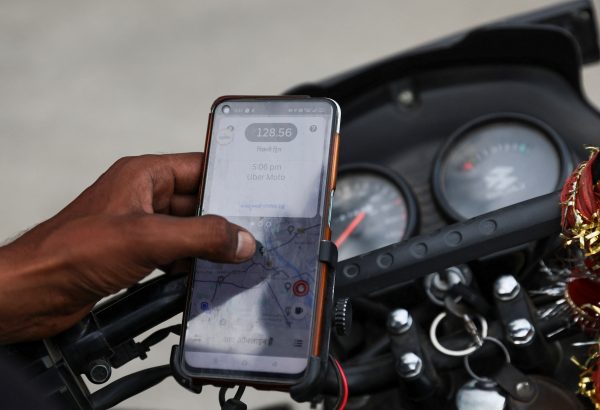Most platforms denied knowledge of or responsibility for the events and made no changes to prevent further tragedy. Priyanka Devi reported that Uber did not contact her for days, and that it was only media attention that forced them to do so. Uber executives blame Priyanka for not pushing the in-app emergency button during the attack.
These events are a manifestation of ‘necrocapitalism’ — a situation where a platform company harnesses human debilitation and death for economic gain. Necrocapitalism is an extension of algorithmic biopower, using an employee’s time, body and life to maximise organisational profits. This devalues labour, making individuals expendable. It generates a ‘necropolitical workforce’ — a term originally associated with militaries due to their proximity to mortality. But work-related death is honoured in the military, while platform workers are often ignored by their organisations.
Platforms promise flexibility to low-wage or unemployed individuals. But this rhetoric is paradoxical. Embedded algorithms manipulate worker behaviour through nudges of reinforcement and the application of penalties to ensure that working hours are longer than intended and tailored towards the organisation’s targets. This is a form of digital enslavement. Gig workers fill their days with seemingly profitable activities while covertly accepting the risk of death or debilitation from exploitative work conditions. The lack of robust policy ensuring gig workers’ legal protection exacerbates this exploitation.
The absence of a distinct professional identity for platform workers in India’s employment laws amplifies these risks. Accidents are inevitable given the tight deadlines employees are required to meet while navigating heavy traffic. Some workers deliver for multiple platforms simultaneously, increasing stress and road risk. Constant notifications from work apps distract drivers, who are already physically and mentally fatigued. Respiratory infections are common from spending extended time on the roads.
In cases of work-related death or permanent impairment, workers are ineligible for private insurance and must rely on public healthcare. Uber drivers — especially women — face potential abuse while being forced to work for their survival. The willingness of labourers to accept deadly risks allows platforms to remain unimpacted while workers become disposable.
With government-sponsored think tank NITI Aayog predicting rapid growth in India’s gig economy, politicians are paying attention to this burgeoning digital vote bank. In 2020, the Indian government passed the Social Security Code. This defined a ‘gig worker’ as a person who participates in a paid work arrangement outside a traditional employer–employee relationship. But gig workers were differentiated from employees, making them ineligible for benefits such as gratuity and maternity leave.
In July 2023, the state of Rajasthan attempted to overcome this shortcoming through the Rajasthan Gig and Platform Workers (Registration and Welfare) Act. This legislation introduced transparency in platform-based transactions by mandating that platforms pay a percentage of their earnings from each transaction into a welfare fund that would provide healthcare and social benefits to workers. Transaction-level data has traditionally remained inaccessible to gig workers and having this on a government database is a national first. By assigning each worker a unique ID to track benefits, the act is a step towards attributing gig workers an employment status.
It also introduced a welfare board comprising government, union and platform representatives to reduce corruption and ensure a government stake in fund disbursement. Despite concerns that the bill would absolve platforms of accountability for regular payments, this reform acknowledged the rising economic contribution of gig workers.
Opposition leader Rahul Gandhi’s interaction with platform workers has gained media attention. The state of Karnataka’s government also launched an insurance scheme, though benefits were lower than promised. While these are positive steps, the inequitable power distribution between platforms and workers remains a challenge for legislators.
Workers’ attempts to boycott platforms constitute ‘algoactivism’, an emerging movement where individuals ignore or suppress algorithms and disrupt operations. Such attempts have had limited success because organisations design algorithms to penalise workers’ behaviour. For workers depending on a platform for subsistence, prolonged protests are infeasible.
Until national legislation is enacted, workers must rely on unions like the Indian Federation of App-Based Transport Workers (IFAT) and the All-India Gig Workers Union (AIGWU). But union rights remain limited. These unions are not legally recognised and workers cannot approach labour courts as they lack employee status.
But the unions have still deployed creative techniques to secure workers’ rights. Platform workers at Urban Company protested against unfair labour practices using WhatsApp with AIGWU support. In response to protests by IFAT, Blinkit launched an opt-in distance-based incentive policy, but programmed their algorithms to assign orders only within short distances.
As platform workers continue their fight for employment rights, creative protest techniques will be needed to offset labour laws ill-equipped to protect workers from necrocapitalist exploitation. For now, the only calls Priyanka Devi receives from Uber are those enquiring as to when she will return to work.
Anjana Karumathil is Associate Professor of Practice at the Indian Institute of Management, Kozhikode.

